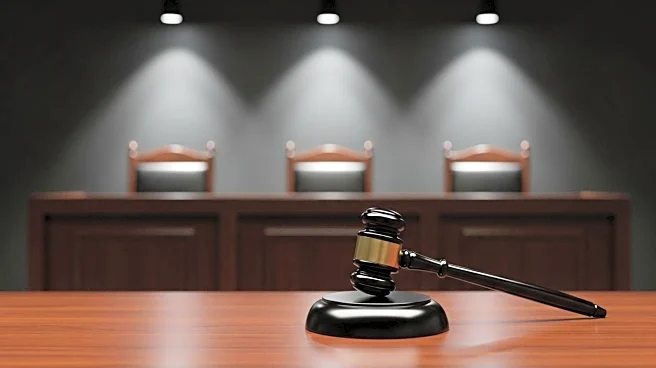What is the story about?
What's Happening?
Ryan Routh, accused of attempting to assassinate President Trump, is representing himself in federal court. He plans to call only three witnesses in his defense. Prosecutors have presented 38 witnesses over seven days, aiming to secure a life sentence for Routh. The incident occurred at Trump's West Palm Beach golf course, where Routh allegedly aimed a rifle at Trump through shrubbery. Routh has pleaded not guilty to charges including attempted assassination and assaulting a federal officer. He has expressed dissatisfaction with his court-appointed lawyers, leading to his decision to represent himself. The trial is proceeding at a faster pace than expected, with closing arguments scheduled soon.
Why It's Important?
The case highlights the legal complexities and risks involved when defendants choose to represent themselves, especially in high-profile cases. It underscores the challenges faced by the judicial system in ensuring fair trials while dealing with defendants who may not fully understand legal procedures. The outcome of this trial could have significant implications for legal precedents regarding self-representation and the handling of assassination attempts against political figures. The case also reflects ongoing security concerns for public figures and the measures taken to protect them.
What's Next?
Closing arguments are expected soon, with jurors set to begin deliberations thereafter. The trial's outcome will be closely watched, potentially influencing future legal strategies in similar cases. The decision could impact public perception of security measures for political figures and the effectiveness of the judicial system in handling such threats.
















